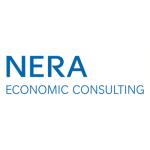In this article, discussing a series of transfer pricing (TP) economic and regulatory technical challenges and solutions for global multinationals, Managing Director Yves Hervé and Associate Director Philip de Homont focus on the use of DEMPE analysis to identify economic ownership and substantiate comparable uncontrolled price (CUP) studies.
In TP audits around the world, tax authorities are starting to use the development, enhancement, maintenance, protection, and exploitation of intangibles (DEMPE) concept that was recently established by the OECD. In particular, tax authorities stipulate that local entities in their geographies have conducted DEMPE functions for intangibles that they license from group companies and that, therefore, the royalty should be lowered – or disregarded entirely.
This development requires a new approach by taxpayers, both for setting their IP remuneration and for TP documentation and tax audit situations. One challenge is that, while DEMPE is becoming ubiquitous, the definition offered by the OECD is very open.
NERA has established a procedure to address the open points of the DEMPE analysis. Our method follows a combination of qualitative economic reporting that shows how these functions are exercised, and quantitative analysis of the relative importance of these functions. Over the past year, NERA has performed several DEMPE studies in tax audits and for TP studies, and applied the results to calculate profit splits or defend benchmarking studies of comparable licence agreements. In all cases, it was key to analyse the economic underpinning of the concrete DEMPE functions in order to see the overall value creation contribution.
In the first case, we were asked to defend a CUP analysis for a trademark licence agreement between a licensor in the US and a licensee in Mexico. For the audit period, which predated the new OECD guidelines, the Mexican tax authorities challenged the CUP studies and demanded a DEMPE analysis.
NERA analysed the facts and could show that the US company developed the brand originally and performed strategic management to enhance the brand (e.g. periodical rebranding activities and concepts for new online distribution channels). It also provided guidance for local marketing activities (e.g. branding material) and centrally registered the trademarks. On the other hand, the local licensor performed local marketing activities and exploited the brand value to generate sales.
In the next step, the insights of the DEMPE analysis were used to test if this contribution split is similar to contracts between unrelated third parties (i.e. we reviewed the functions and responsibilities assigned in third-party contracts). Many brand licensing contracts demand the licensee to perform certain marketing activities under the strategic guidance of the licensor. NERA demonstrated that the selected CUP benchmarks were comparable in the functional split between licensor and licensee.
In a second project, NERA performed a DEMPE study to support a profit split analysis and measure contributions of two entities to the joint creation of valuable technologies.
A multinational group had acquired an Austrian company, and soon started to use both the umbrella brand of the group and the company's previous name. In the next TP audit, tax authorities started to question the brand royalty, stipulating that the value was primarily due to the local brand and that the international umbrella brand was essentially worthless.
NERA proceeded to undertake an interview-based survey of internal experts. Qualitatively, it was possible to establish the various forms of contributions to the respective brands, such as platform intangibles, trade fair exhibitions, and rebranding initiatives. More importantly, following a rigorous selection of interviewees, we collected a substantial number of responses. The analysis showed that the value was indeed derived from the combination of umbrella and local brands; the market-facing experts could identify the contribution of the umbrella brand in detail.
This allowed the establishment of a profit split methodology based on the relative contribution to the intangibles, and ultimately showed that the trademark royalty for the umbrella brand was arm's length.













